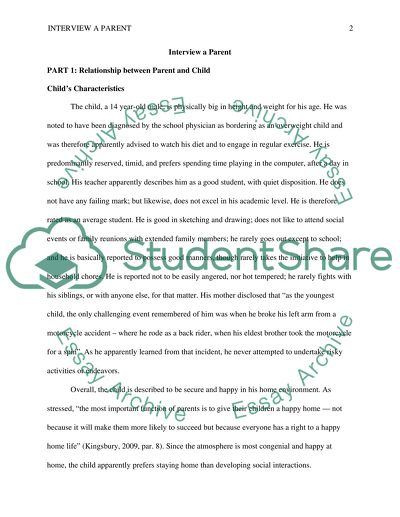Cite this document
(“Interview a parent on their child Essay Example | Topics and Well Written Essays - 1750 words”, n.d.)
Interview a parent on their child Essay Example | Topics and Well Written Essays - 1750 words. Retrieved from https://studentshare.org/education/1466488-interview-a-parent-on-their-child
Interview a parent on their child Essay Example | Topics and Well Written Essays - 1750 words. Retrieved from https://studentshare.org/education/1466488-interview-a-parent-on-their-child
(Interview a Parent on Their Child Essay Example | Topics and Well Written Essays - 1750 Words)
Interview a Parent on Their Child Essay Example | Topics and Well Written Essays - 1750 Words. https://studentshare.org/education/1466488-interview-a-parent-on-their-child.
Interview a Parent on Their Child Essay Example | Topics and Well Written Essays - 1750 Words. https://studentshare.org/education/1466488-interview-a-parent-on-their-child.
“Interview a Parent on Their Child Essay Example | Topics and Well Written Essays - 1750 Words”, n.d. https://studentshare.org/education/1466488-interview-a-parent-on-their-child.


